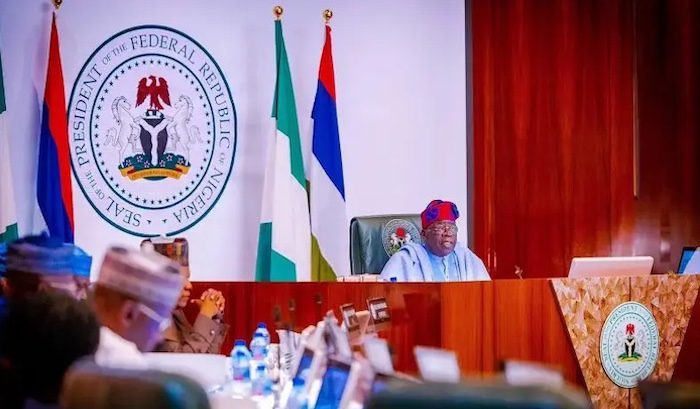
FG approves N10.3bn for diabetes kits, HIV drugs, after USAID suspension
…Approves N679bn for 13 road contracts
…Considers raising procurement limits to prioritise policy reforms
By Seun Ibiyemi
Following the suspension of medical aid from the United States Agency for International Development (USAID), the Nigerian government has approved N10.3 billion to procure diabetes test kits, HIV drugs, and hospital equipment to address urgent healthcare needs.
This is even as the Federal Executive Council (FEC) approved 13 road contracts worth N679 billion under the Ministry of Works, signaling the government’s commitment to infrastructure development while prioritising existing projects based on available funds.
The decision, announced after the Federal Executive Council (FEC) meeting, aims to mitigate the impact of USAID’s withdrawal and ensure continued access to essential medical supplies.
Minister of Health and Social Welfare, Prof. Ali Pate, announced the approvals while addressing journalists at the State House, Abuja on Wednesday after the FEC meeting, which was presided over by the President Tinubu.
“This allocation will help bridge the gap left by the USAID program, ensuring that people living with diabetes and HIV/AIDS receive the care they need,” Dr. Yusuf said.
According to Pate, the intervention targets critical areas of healthcare, ensuring that Nigerians—particularly the poor and vulnerable—can access essential medications and diagnostic tools. The approved funds cover various medical supplies and hospital equipment, including:
N997 million for third-line antiretroviral drugs to treat HIV/AIDS patients who have developed resistance to first- and second-line treatments.
N2 billion for the procurement of locally manufactured diabetes diagnostic kits to improve early detection and monitoring of the disease.
N4.5billion for essential antibiotics, antihypertensive, and antidiabetic medications, ensuring affordability for Nigerians.
N2.1billion for the procurement of a mobile X-ray machine, rehabilitation of a computerized tomography (CT) scan, and installation of a 64-slice CT scanner at Abubakar Tafawa Balewa University Teaching Hospital in Bauchi.
A significant aspect of the FEC’s decision is the government’s support for local manufacturers.
The diabetes diagnostic kits, which will be procured using part of the N2 billion allocation, will be sourced from a Lagos-based Nigerian company, making it one of the first in Africa to produce such medical equipment locally.
“Diabetes is a major health challenge in our country, with many Nigerians unaware they have the condition. For the first time, a local company in Nigeria will manufacture diagnostic test kits, bringing to life the effort to unlock the healthcare value chain,” Pate explained.
The government will also procure Onpoint blood glucose monitoring systems alongside diagnostic kits, ensuring that diabetes patients can consistently monitor their condition.
Pate emphasised that health workers across primary healthcare centres and other medical facilities would be trained to use these kits.
In addition to diagnostic tools, the N4.5 billion approved for antibiotics, antihypertensives, and antidiabetic medications will help reduce costs for patients.
The minister noted that these medications would be sourced from local manufacturers, strengthening Nigeria’s pharmaceutical industry.
“We are pooling demand and prioritising our local manufacturers to reduce costs while ensuring that Nigerians have access to essential medicines,” Pate stated.
The FEC also approved N2.1 billion for Abubakar Tafawa Balewa University Teaching Hospital in Bauchi to improve its diagnostic capabilities. The funds will cover the procurement of a mobile X-ray machine to enhance radiology services and the rehabilitation and equipping of a CT scan facility. It will also include the installation of a 64-slice CT scanner, ensuring high-quality imaging services.
Pate highlighted the hospital’s regional importance, serving not just Bauchi State but also neighboring states.
“The diagnostic services and clinical care at this hospital will be of the highest quality, strengthening its role as a key referral center,” he said.
The approvals are part of President Tinubu’s broader vision for healthcare reform.
According to Pate, the administration is working “relentlessly” to enhance Nigeria’s healthcare system, ensuring that policies translate into tangible improvements for citizens.
“These interventions are in line with our transformation agenda for the Nigerian health sector. We are executing them with urgency and efficiency to deliver results”, he affirmed.
…Approves N679bn for 13 road contracts
Also, Minister of Works, Dave Umahi, announced the approval of 13 road contracts after the FEC meeting presided over on Wednesday by President Bola Ahmed Tinubu, emphasising that the ministry would focus on rescoping, variations, and new contracts in a way that ensures the most efficient use of resources.
“The directive of the Federal Executive Council is to ensure that all inherited projects are prioritised based on available funds. We have to rescope these projects, allocate funds wisely, and protect completed sections from damage,” Umahi stated.
Among the newly approved projects is the Zaria-Hunkuyi-Kolomani-Dan Bali-Maraba-Kanya-Subawa-Kasa Road, which spans Kaduna and Katsina States.
The contract, awarded to MotherCat Nigeria Limited, is valued at N198 billion and is set for completion in 36 months.
Another significant approval is the Kano-Maiduguri Road rehabilitation, focusing on a previously terminated section from Dantata & Sawoe.
The contract has been reassigned to Tractor Nigeria Limited at ¦ 128.395 billion, with an expected completion period of 18 months.
In Bauchi State, the Alkaleri-Fukuk Road will be constructed in phases, with Phase One approved at ¦ 11.278 billion for completion in six months.
Similarly, the Uturu-Isikwato-Akara Road in Abia State has been earmarked for phased execution, with the first phase set at ¦ 5.926 billion over six months.
In Imo and Anambra States, the Oba-Nnewi-Arisizogu-Okigwe Road will undergo a six-month rescoping at ¦ 8.45 billion.
The Bagudu Road in Kebbi State, spanning 57 kilometers, has been approved for ¦ 2.645 billion, ensuring the continuation of work to prevent deterioration.
The Iyin-Ilawi-Ekiti Road contract, initially awarded at ¦ 13.736 billion, was revised after an error was discovered and the corrected contract sum now stands at ¦ 15.626 billion, as approved by FEC.
Other projects approved include: Ilobu Road (Kwara/Osun States) – ¦ 7.556 billion (Phase One, six months); and Wukari-Akwana Road (Taraba State) – ¦ 12.615 billion (12 months).
Others are Bida-Lapai-Lambata Road (Niger State) – ¦ 39.493 billion (Phase One, six months); Gada-Ziama-Zuru-Gamji Road (Kebbi State) – ¦ 11.976 billion (six months); and Kaiama-Kishi Road (Oyo State) – ¦ 12.35 billion (12 months).
Umahi stressed that the ministry’s priority is protecting completed infrastructure, particularly roads with binder courses that are at risk of damage from heavy rainfall.
“We must use available funds to protect completed sections. If rain falls on roads with only a binder course, they will deteriorate quickly. Our focus is to put the wearing course in place to safeguard the pavement,” he explained.
In addition to road contracts, FEC also approved an adjustment to the Outer Marina Shore Protection Project in Lagos.
Initially valued at ¦ 144 billion, the contract was revised to ¦ 176 billion to extend shoreline protection to federal institutions, including the Nigerian Navy.
Another key approval involves the Cham-Numan Road and Bridge, which was severely affected by flooding in October 2024.
The contract has been revised to accommodate repairs and ensure timely completion.
For the Aba-Ikot Ekpene Road dualization, the first phase has been awarded to CGC Nigeria Limited at ¦ 30 billion, with construction set to proceed in stages.
Umahi reaffirmed the federal government’s commitment to ensuring infrastructure projects align with the ¦ 54 trillion national budget for 2025.
He emphasised that contracts would be executed within budgetary limits, prioritizing projects that require urgent attention.
“We are not making approvals arbitrarily. Every contract follows due process, with proper guidelines in place to ensure value for money,” Umahi assured.
…Considers raising procurement thresholds to focus more on policy
Minister of Information and National Orientation, Mohammed Idris, disclosed that the Federal government is considering a proposal to increase budget thresholds for ministries, departments, and agencies (MDAs) to reduce the time spent on procurement-related discussions and allow for greater focus on policy deliberations.
Speaking to journalists at the State House, Abuja, after Wednesday’s FEC meeting, noting that a significant portion of memos brought before the council pertains to contract approvals.
“You will notice that so many of these memos coming to the council are related to procurement contracts at the FEC level. So FEC thought that it is good to review that so that more time will be given to policy discussions at different Executive Council meetings,” Idris said.
The proposal, still under deliberation, seeks to empower ministers and heads of MDAs with higher approval limits, reducing the frequency of procurement-related memos reaching the FEC.
This shift, according to the minister, was a key point of discussion during the meeting, with President Bola Tinubu leading the debate.
“The idea is that it’s not yet conclusive what the final decisions are, but there is a very fruitful debate led by the chairman of the council, Mr. President himself, to review that so that we can have more time for policy discussions at the Federal Executive Council meetings,” he explained.
To refine the proposal, the Director-General of the Bureau of Public Procurement (BPP) and relevant ministers have been tasked with working out the details.
Their recommendations will be presented to the FEC for final approval by the president shortly.
“If you observe, all the memos presented here are largely related to procurements, and so we want that to be decongested at the Federal Executive Council level.
“This will give room for more detailed discussions on policy issues and reduce some of these memos coming by increasing the threshold of those procurement processes to be executed at the ministerial level,” Idris added.
The move is expected to enhance the efficiency of FEC meetings, ensuring that more attention is devoted to strategic policy matters crucial to national development.




